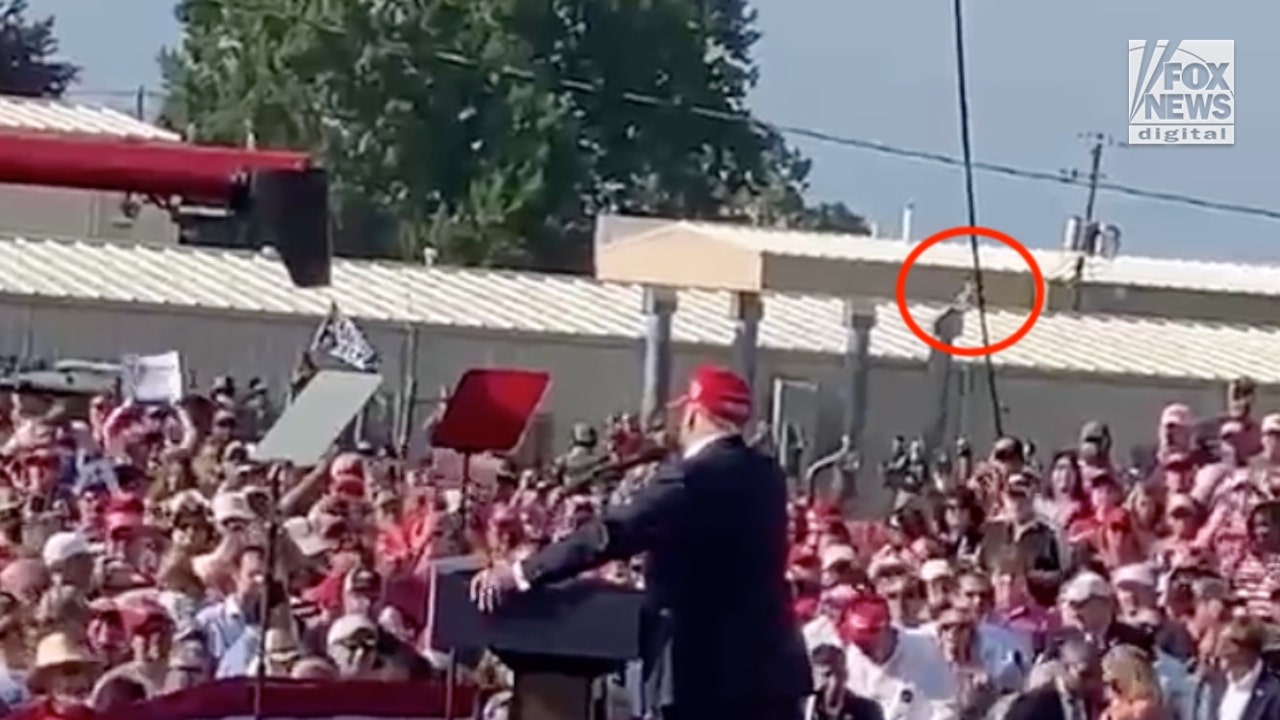In today’s newsletter, I want to help you understand the emerging crackdown on big technology companies. The European Union yesterday imposed a $2 billion fine on Apple, and regulators in the U.S. are pursuing cases against Amazon, Google, Facebook and perhaps Apple.
These legal cases are often complex, and I know that some readers find them hard to follow. But the underlying ideas can be clearer than the details. My goal today is to give you a framework for making sense of a major economic and political story.
The cycle
Almost 15 years ago, a law professor named Tim Wu published a book called “The Master Switch” that helped me to understand this issue. In the book, Wu used a term — “the cycle” — to describe what happened after a new form of communication arrived, be it the telephone, radio or internet.
Initially, he explained, new communication industries are diffuse, dominated by small players. The barriers to entry are low. In the early days of radio, amateur stations proliferated, much as the early internet was quirky and offered few opportunities for profit.
Over time, though, the new industry tends to become concentrated for a reason: Almost every form of communication depends on a network of users. And larger networks are inherently more valuable than smaller networks.
Once a radio station becomes popular, more people want to listen to it so they can know what other people are hearing, and more companies want to buy advertisements. The same is true with the internet: If all my friends have an Instagram account, I’ll want one, too. This cycle is reinforcing, causing large companies to grow even larger. It’s part of what economists call “increasing returns to scale.”
But consolidation brings a major downside for a society. Communication businesses can become monopolies, with the power to set prices and control society’s discourse.
For most of the 21st century, regulators in the U.S. and other countries allowed technology companies to grow ever larger. (Consider this statistic: The combined stock market value of Amazon, Apple, Microsoft and the parent companies of Facebook and Google has more than doubled since just the end of 2019.) Only recently have regulators have begun to step in.
The Biden administration has made antitrust enforcement in the technology sector a top priority. “The president knows that vibrant capitalism depends on strong competition,” Lael Brainard, Biden’s top economic adviser inside the White House, said yesterday. “Competition lowers prices, raises wages and levels the playing field for small businesses.”
One sign of the change is Wu himself. When he published “The Master Switch” in 2010, he was a professor at Columbia University. Four years later, he ran a doomed campaign for lieutenant governor as a critic of Gov. Andrew Cuomo and concentrated corporate power. Since then, however, both Democratic and Republican policymakers have become more concerned about Big Tech — and Wu is no longer just a gadfly. After President Biden took office in 2021, he appointed Wu as an adviser.
Bipartisan concern
The new U.S. and European regulatory efforts focus on the power that technology companies derive from the vast networks they run.
The E.U.’s $2 billion fine on Apple, for example, cites the company’s practice of charging fees of up to 30 percent to other companies that sell services through the App Store. Apple has sometimes refused to allow these companies, like Spotify, to advertise cheaper alternatives to the same services. Apple has the power to do so because it knows that many consumers are loath to leave the iPhone network.
As part of the E.U.’s actions, Apple has agreed to make some changes. Other companies are promising changes as well, many tied to a new E.U. law, the Digital Markets Act. The Biden administration has also sued Amazon, Google and Facebook. For more explanation, I recommend this article by my colleagues Adam Satariano and David McCabe.
The antitrust crackdown on Big Tech has bipartisan appeal at a time when few issues do. William Barr, who was attorney general under both Donald Trump and George H.W. Bush, has accused Apple of using an arsenal of anticompetitive tactics. Senator J.D. Vance, an Ohio Republican, has praised Lina Khan — Biden’s most prominent antitrust regulator — as “one of the few people in the Biden administration that I actually think is doing a pretty good job.”
The technology companies generally deny that they have behaved anti-competitively (and Apple is appealing the E.U.’s $2 billion fine). The companies argue that the solution to any monopoly is the free market and that they remain vulnerable to new rivals that can disrupt their networks. This argument has some validity, because new technologies can sometimes break open dominant networks. Television did it to radio, and TikTok may do it to Instagram.
But history isn’t entirely on the companies’ side. Frequently, dominant companies eliminate threatening rivals by buying them, as Google did with YouTube and Facebook did with Instagram and WhatsApp. That’s why the only entity with the power to tame a monopoly is often a national government. It happened with the railroads and oil trusts more than a century ago and with AT&T in the 1980s.
It’s too early to know whether a new era of trustbusting has begun, but governments are trying harder to confront Big Tech than they were a few years ago.
More on antitrust
THE LATEST NEWS
Supreme Court
-
The Supreme Court unanimously ruled that Trump can remain on Colorado’s ballot in today’s primary, ending efforts in several states to disqualify him for insurrection.
-
It did not take a position on whether Trump’s role in the Jan. 6 Capitol attack amounted to insurrection, as other courts had found.
-
The ruling settled ballot questions but hardened political divisions.
-
The decision was the court’s most important concerning a presidential election since Bush v. Gore, The Times’s Adam Liptak wrote. Read highlights from the ruling.
2024 Election
More on Politics
-
Allen Weisselberg, the Trump Organization’s former C.F.O., pleaded guilty to lying to investigators in Trump’s civil fraud case.
-
Texts and emails show the Trump campaign’s fake electors plot aimed at sowing enough confusion to overturn the election in Congress, rather than at winning in court.
-
A federal judge issued a mixed decision in a case challenging Arizona voting laws. She upheld rules requiring proof of citizenship but limited how voters can be disqualified.
-
Arizona’s governor vetoed a bill that would have let the state police arrest undocumented immigrants.
Israel-Hamas War
-
A U.N. report found signs that militants sexually assaulted Israeli women during the Hamas-led Oct. 7 attack. The report also found clear evidence that hostages in Gaza had been sexually assaulted and tortured.
-
Vice President Kamala Harris met with Benny Gantz, a top Israeli official, at the White House and pushed for a deal to return hostages and pause the fighting in Gaza.
-
Since the war started, Israel’s military campaign in Gaza has killed more than 30,000 people. Here are some of their stories.
Asia
-
Europa, Jupiter’s ocean moon, was thought to be habitable. A study suggests that it generates less oxygen than some astronomers expected.
-
Jack Teixeira, a Massachusetts Air National Guardsman, pleaded guilty to posting secret intelligence reports online. He could serve 16 years in prison.
-
A New York City official said Rikers Island is not likely to close by August 2027, the deadline set in law. The city has made little progress on building four smaller jails to replace it.
-
Bicycle deaths in New York City, despite a rate trending downward for years, reached a 23-year high last year. Most of the cyclists died while riding electric bikes.
Opinions
Religious faith, sports references and tangible results: Democratic candidates win in red and purple states when they separate themselves from their party, Frank Bruni writes.
Here are columns by David French on the Supreme Court’s decision not to disqualify Trump and Paul Krugman on Republicans’ dystopian rhetoric.
March Meowness: A Massachusetts library will forgive members for lost or damaged items. They just need to present a picture of a cat.
Lives Lived: Juli Lynne Charlot, needing something to wear to a Hollywood Christmas party, invented the poodle skirt on a whim. Its voluminous fabric that flared prettily when the wearer twirled made it a huge hit in the 1950s. Charlot died at 101.
SPORTS
N.F.L.: The Denver Broncos officially released the quarterback Russell Wilson after two disastrous years.
Moving on: Jason Kelce, the beloved Philadelphia Eagles lineman, announced his retirement, though he’ll likely remain on a screen near you.
Men’s college basketball: The N.C.A.A. is expected to cap any future expansion of its annual tournament at 76 teams, an official said.
Dutch delights: If you visit Amsterdam, you are likely to encounter the work of the artist Frank de Ruwe, known as Frankey. He turns unassuming spots in the city into something more playful — a dragon affixed to a steam pipe, a surfer riding a curved awning. He spoke to The Times about his work:
In the press, your street art pieces are called “urban interventions.” What does that term mean to you?I just want to make people smile with my work, that’s the greater good. A 6-year-old and a 90-year-old can smile at the same thing; it’s amazing that you brighten someone’s day with just one object. It’s so easy to be a bit more friendly in the streets, and I think that’s what I’m doing.
See more of Frankey’s work here.






